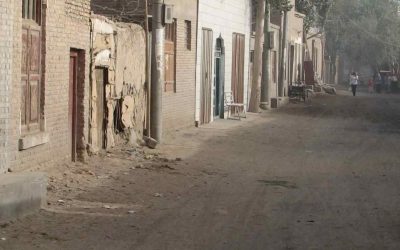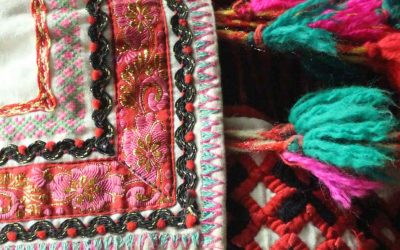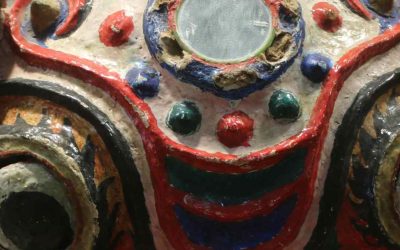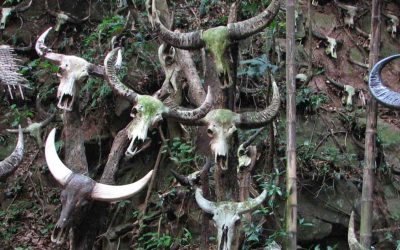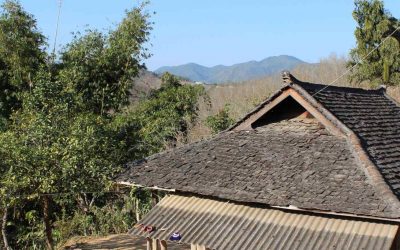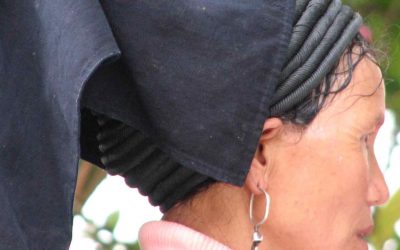Mao Dun’s Spring Silkworms-A must read
In short: A set of stories of exacerbated realism by one of the finest pens of 20th century Chinese literature, which no one should miss in order to understand both the literature and the life and history of contemporary China.
After my disappointment in recent days with Mao Dun’s «Midnight», I have reread the short stories and novellas collected under the title «Spring Silkworms and other stories». I had already read the book 20 or 25 years ago, and when I took it in my hands again I knew that I was facing some hard stories in which the suffering of his characters is described with an almost mathematical precision, the causes of the same are chained in a concatenation of events and policies that only result in ruin, disaster, hunger, suffering.
The corrupt policies of the Kuomintang government, the Japanese invasion, usurious loans, with monthly interest, taxes, political and natural calamities, all play against the common people, always the losers. And although Mao Dun almost always leaves the reader on the brink of the disaster, when it already seems inevitable, and strives to make the protagonists of his stories the families or characters who are not the ones who are suffering the most from historical and political circumstances that condemn millions of people to hunger and misfortune, the reader ends each of the stories with a heavy heart.
Each of these stories is a masterpiece. The descriptions of family decadences encompass a broad geographical, economic, labor and social spectrum, as if the author in writing them and the publisher in putting them together in this volume wanted to show a reality of Leo Tolstoy’s phrase: «All families are alike in happiness, each is different in its misfortune.»
And one of the fascinating aspects of the work is that it shows how misfortune affects anyone, changing their life prospects overnight, sometimes in the midst of disbelief, like Mr. Li from «Wartime,» or Miss Lin from «The Lin Family Store.» As if the first blows of a fortune that is going to become increasingly adverse will be met with the disbelief of those who live their normal lives.
Precisely these two stories, along with those that tell us about the atmosphere in the village of Old Tong Bao, shaken first by the falling prices of silk cocoons and then of rice, are the most elaborate. And while the first two tell us about a misfortune that we could call conjunctural, a war in «Times of War» or a complex political and economic moment in «The Lin Family Store», the second ones tell us about a system that cannot be maintained any longer, as it leaves the peasants continually on the edge of the abyss of misery.
In short, we find ourselves with a set of stories that no one should miss to understand both literature and the life and history of the first half of the twentieth century in China.
Mao Dun. Spring Silkworms and other stories. Translated by Sydney Shapiro. Foreign Language Press. Beijing. 1979.
Cite this article as: Ceinos-Arcones, Pedro, «The first description of the Religion of the Yi,» in Ethnic China, 21 marzo 2021, https://ethnic-china.com/the-first-description-of-the-religion-of-the-yi/.
Last posts
The Baoan, master sword makers in the Silk Road
The Baoan, master sword makers In the dry lands of Gansu province, at the foot of the Jishishan mountain, there are three villages inhabited by different people. At first glance, their life is the same as that of any other Muslim population in that vast region crossed...
The goddess of the Sun of the Jingpo
The goddess of the Sun of the Jingpo The goddess of the Sun was in the sky when one day she realized that on Earth the situation of men had changed a great deal. When they were created, they were all equal, and without evil and they did not covet riches. The latest...
Funeral Masks of the Zhuang people in the Nationalities Museum of Kunming
Funeral Masks of the Zhuang people in nationalities Museum of Kunming Known as Longyawai Masks, they are funeral ceremony masks popular in the Zhuang communities of Wenshan Autonomous Prefecture, on the east of Yunnan Province. The masks are shaped as a lion, they are...
The creation of the world among the Wa of China
The creation of the world among the Wa of China As soon as the heaven was formed, it looked like the back of a toad, full of lumps and protrusions, it was very ugly. The god Li[i] extended his hands and was polishing without stopping. Nobody knows how many years he...
The Jinuo, descendants of the uncle
The Jinuo, descendants of the uncle The Jino, with a population of only 21.500 persons (in 2005) are one of the smallest minorities in China and the last to be officially recognized as such, as they were designated a national minority and granted the special rights...
The Blue Women of China of the Yao minority
The Blue Women of China of the Yao minority Many people have heard of the Blue Men of the Sahara (the Tuareg), but few have heard of the Blue Women of China. And in fact among the women of the so-called Landian Yao or Landen Yao outside China, the production, dyeing...





